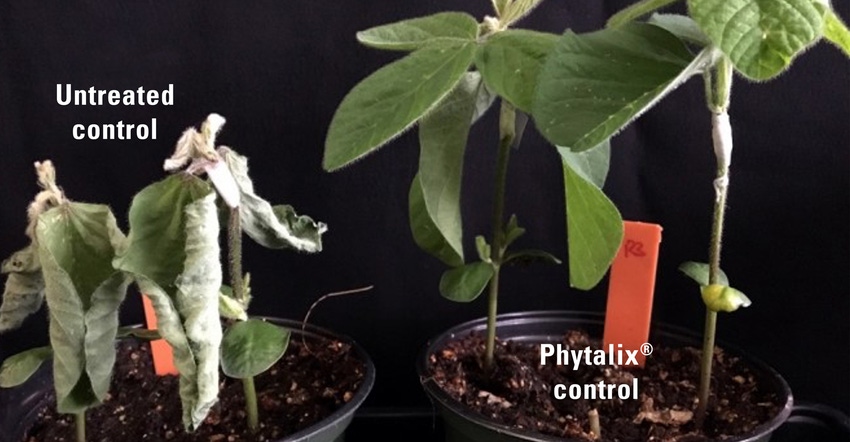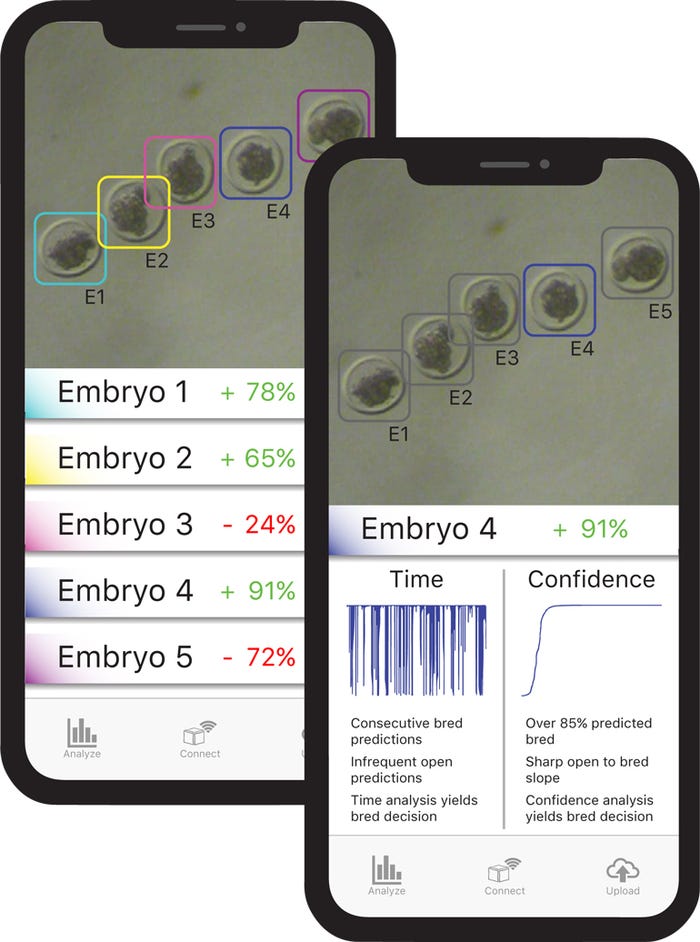
A company that makes and markets allergen-free food took the $1 million top prize at this year’s Grow-NY competition. But other companies that won lesser awards are working on cutting-edge technology that could have an even bigger impact on agriculture in the long term.
This was the third year of the Grow-NY competition, which is open to agribusiness startups that are less than 7 years old. The application process starts in late winter and culminates in awards being announced in fall.
The top winner receives $1 million. Two runners-up this year received $500,000 each, and four other companies each received a $250,000 prize. Each company will be paired with a business mentor and will receive ongoing business development training. In exchange, they must operate for at least a year in the Grow-NY region of the Finger Lakes, the Southern Tier and central New York.
Improving embryo transfer
Cara Wells, CEO and founder of EmGenisys of Houston, is taking a machine learning and computer vision approach to improving embryo transfer success in cows. She founded her company last year after a previous company she headed that had a similar goal did not pan out.
“When we tried to take the product to market, we just learned that while it was accurate, it wasn't fast enough to be performed at scale, and ultimately the company didn't work out," Wells says.
Embryo transfer and in-vitro fertilization (IVF) are routinely done on dairy and beef operations. It enables the perpetuation of genetics from superior cows to surrogate mothers.
But according to Wells, it’s only 35% successful because there is no reliable or safe way to evaluate embryo health.
“There is no good, objective way to see if the embryos are alive or dead at time of transfer, meaning that there is a chance that nonviable eggs get inserted at transfer,” she says. “So what we do is we use technology to identify those very poor or nonviable embryos, so the veterinarian can throw them out and not waste any more time or effort.”

TOOL FOR EMBRYOS: EmGenisys of Houston is taking a machine learning and computer vision approach to improve embryo transfer success in cows.
Here’s how it works:
The veterinarian records a 30-second video of an embryo collected from an animal with a standard off-the-shelf video camera — mobile devices don’t work with the technology yet. They then upload the video to the EmGenisys online system. Using a series of filters and micromotion, the embryos are made to look more amplified. Wells says that trained machine learning models then look at the embryos’ movement to make viability projections.
“So in short, we're scanning each embryo for signs of life, and we can use that to say, yes, this is alive and has a good chance of establishing pregnancy, or no, this one doesn't stand a chance," she says, adding that the machine models are performing at a 95% accuracy right now.
The typical process of embryo transfer is to collect the eggs and grow them to about 7 days old. They are then placed in a recipient cow or are frozen. Assessing an embryo is typically done in a lab, one embryo at a time.
With EmGenisys’ technology, Wells says it can evaluate videos of six embryos in one shot.
"The biggest way that we've sped this up is we decreased the prep time because we just take videos under the … system that they're already working with, and we can analyze embryos at once," she says.
The company received a $250,000 grant from Grow-NY, which Wells says will be used to create a graphic user interface for the software. She also hopes to officially launch the product in New York state.
The potential impact of the technology could be significant, she says. On a dairy farm, fewer days open and getting cows pregnant faster means more lactation and milk, and possibly more high-merit value animals to keep or sell.
"We believe that improving pregnancy rates 20% will decrease the cost that a producer pays per pregnancy,” Wells says. “In doing so, they can reduce the size of their recipient herd, which saves them money.”
Molecules drive biopesticide
Ascribe Bioscience, founded in 2017 at the Boyce Thompson Institute at Cornell University, has developed a biopesticide, Phytalix, that primes a plant’s immune system to fight off pathogens.
Jay Farmer, co-founder and CEO of Ascribe Bioscience, says it was developed after the discovery of a signaling molecule produced by a soil-borne pathogen to communicate with other microbes.
Plants can eavesdrop on this “conversation” and perceive the molecule as an early warning that they are about to be attacked.
“In response, plants prime their defenses in preparation for a likely pathogen attack. That is the phenomenon that we’re really leveraging with our product,” Farmer says. “We’re able to induce this defense priming in a plant by applying this specific molecule.”
Phytalix is the company’s first biopesticide. Its mode of application depends on the crop being treated and the pathogen that’s targeted, but Farmer says the company has developed both a seed treatment and foliar spray that can be applied using a normal sprayer at very low amounts.
In field trials across the country, Phytalix is being trialed on wheat to treat fusarium head blight, one of the most devastating diseases of wheat. Farmer says the trials tested the product as a foliar spray at just 25 milligrams per acre applied as a formulated solution added to a spray tank at a rate of 1 ounce per acre. The product is applied at mid-flowering.
Another promising result, he says, is that the product can also be applied in combination with traditional fungicides or other biologicals. It can also be applied at other points during the season, such as when a fertilizer is applied, as a prophylactic.
Phytalix is also being trialed in soybeans as a seed treatment to ward off phytophthora sojae and as a foliar targeting Asian soybean rust.
The company got a $500,000 grant from Grow-NY, which Farmer says will be used to expand field trials and to move from lab scale to pilot-scale manufacturing.
Farmer says that while the market for biologicals is increasing, there is a need for more reliable products as well as products that are compatible with conventional chemicals farmers use.
"A product like Phytalix is right in the sweet spot, in the middle. It's a small molecule, so it's easy to apply, like a synthetic fungicide. It's reliable. You apply it, and it's going to behave the same way every time,” he says. “On the flip side, it's a nontoxic molecule; it's actually not toxic to the fungi we're controlling. The mode of action is mediated through the plant's own defense systems.”
Here’s the complete list of this year’s Grow-NY winners:
Every Body Eat, $1 million. This company from Chicago makes, markets and sells food that is free from corn, sugar and the most common 14 allergens, so people can enjoy it regardless of dietary restrictions or preferences.
Neupeak Robotics, $500,000. From Surrey, Canada, Neupeak produces fully autonomous berry harvesters that are designed to work in all weather and lighting conditions, alongside human workers, to save farmers money by charging a fixed rate per pound of berries collected.
DraughtLab, $250,000. This company from Webster, N.Y., produces high-quality sensory tools for every level of sensory expertise, offering practical and approachable sensory analysis solutions that deliver real-world value to companies of any size.
Nordetect, $250,000. This company from Copenhagen, Denmark, provides rapid chemical analysis for nutrients in the agrifood industry. The company's first product is a lab-on-a-chip test for nutrients found in soil, water and leaf samples, aimed at optimizing the amount of fertilizer used to cultivate crops.
WeRadiate, $250,000. Based in Buffalo, N.Y., this company has a turnkey solution to improve soil quality using hardware, software and data technology, offering a complete array of tools to create high-efficacy and high-quality compost end products at all composting sites.
About the Author(s)
You May Also Like






